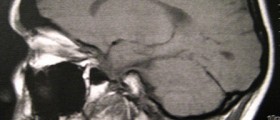
What is Down syndrome?
Down syndrome, also called trisomy 21, is the genetic disorder caused by chromosomal abnormalities. People affected with this condition have 47 instead of 46 chromosomes. Chromosomal abnormalities are usually happening when there is an error in cell division. This way, a person gets an extra chromosome 21, having three instead of two chromosomes in a pair. This extra genetic material causes various developmental and health problems of which gastrointestinal problems are just pieces of a puzzle. In most cases, health problems are present since birth. Therefore, most of the parents are often concerned about possible consequences of a health complication.
Down syndrome and gastrointestinal problems
Many individuals affected with Down syndrome are developing various gastrointestinal diseases, as a complication of their primary condition. In most cases, patients will suffer from severe constipation but things can be even more severe if the nerve cells that control the function of parts of the colon are not present. This feature is seen in Hirschsprung's disease, characterized by a section of bowel that is basically paralyzed. Hirshsprung's disease is diagnosed on 18.6 per 100,000 live births, and it has a strong genetic background. Down syndrome is comorbid in two percent of Hirschsprung’s cases, and it results from the interaction between two proteins encoded by two variant genes. The mutations in one of these genes are associated with Down's syndrome. People who have Hirshsprung's disease usually have delayed passage of stool, abdominal distension and constipation.
About 20–40%, patients diagnosed with duodenal atresia are also suffering from Down syndrome. This accounts for about 8 percent of all patients with Down’s. The condition is characterized by the absence or complete closure of a portion of the lumen of the duodenum, which is present at birth.
Annular pancreatitis is also seen among patients with Down syndrome. This condition is characterized by a presence of a ring of pancreatic tissue on the second part of the duodenum. This impairs normal flow of food to the rest of the intestines and manifests as feeding intolerance right after birth along with low birth weight.
Some children born with Down syndrome will also have an imperforate anus. This is a malformation of the rectum, and it is often present along with other birth defects such as spinal problems or congenital heart defects. Depending on the type of the malformation, patients may have problems controlling bowel function and even suffer from chronic constipation.
Other common gastrointestinal disorders affecting patients with Down syndrome include gastro esophageal reflux disease and celiac disease.

















Your thoughts on this
Loading...